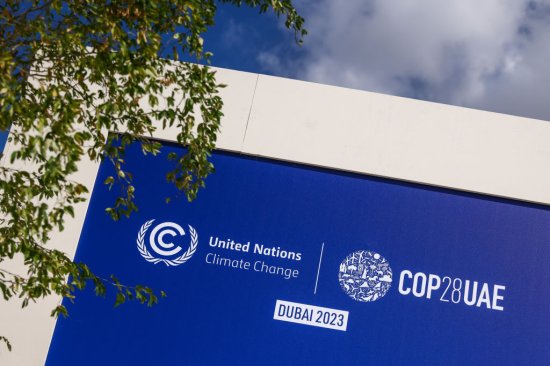
The climate negotiations can move the market over time, and it’s worth paying attention to the signal that emerges from Dubai.
(To get this story in your inbox, subscribe to the TIME CO2 Leadership Report newsletter here.)
The U.N. climate conference known as COP28 officially kicked off this afternoon in Dubai with more corporate executives and big players in the financial sector present than in any such meeting before. Much of their attention on the ground will focus on the private sector announcements made and deals struck, but there’s a reason for private sector folks to pay attention to the seemingly wonky official negotiations taking place between countries in Dubai’s Expo City convention center.
[time-brightcove not-tgx=”true”]For many businesses, the conversations can seem overly procedural and disconnected from the day-to-day reality of cutting a firm’s emissions. And yet these negotiations can move the market over time, and it’s worth paying attention to the signal that emerges from Dubai.
To understand how such influence can spread from COP negotiation halls, look no further than the negotiations that took place in Paris in 2015. Countries agreed to come up with plans to limit average global warming to well-below 2°C over pre-industrial temperatures. The commitment was non-binding for countries and had even less of an immediate impact for companies.
And yet the Paris Agreement has become a key benchmark for climate-concerned investors and companies. CEOs refer to “Paris alignment” to explain their decarbonization progress. There are now funding systems that act as investment vehicles designed specifically to support companies working towards the Paris targets. And some, if not enough, deals are reached or rejected because of these priorities. Laurence Tubiana, the head of the European Climate Foundation and a key framer of the deal, described this to me as “a transformation of the mindset.” “The Paris Agreement [became] the norm, the reference for everybody to know where to go,” she told me in 2020.
What is the signal that might emerge from Dubai? As I’ve written here before, perhaps the biggest area of debate centers on the future of fossil fuels. Negotiators are trying to find common ground on how the world should view oil, gas, and coal. Getting through the negotiations remains a tall order, but any collective agreement that is serious about phasing out fossil fuels will signal to investors and companies that policymakers remain—at least in principle—committed to addressing climate change. That reality should at the very least make backers of fossil fuel expansion pause to take stock. On the flip side, failure to reach a deal on fossil fuels would signal that countries have lost their fortitude, and the speed of the energy transition may be slower than hoped.
Fossil fuels are just the start. Delegates are trying to find the best ways to commit public money to advancing private clean energy projects in emerging markets. Outcomes that advance this so-called blended finance approach could create new opportunities for investors interested in funding clean energy deployment.
Those two changes alone will shape the allocation of billions of dollars in capital, and spread across the economy, and they’re just the most obvious ones.